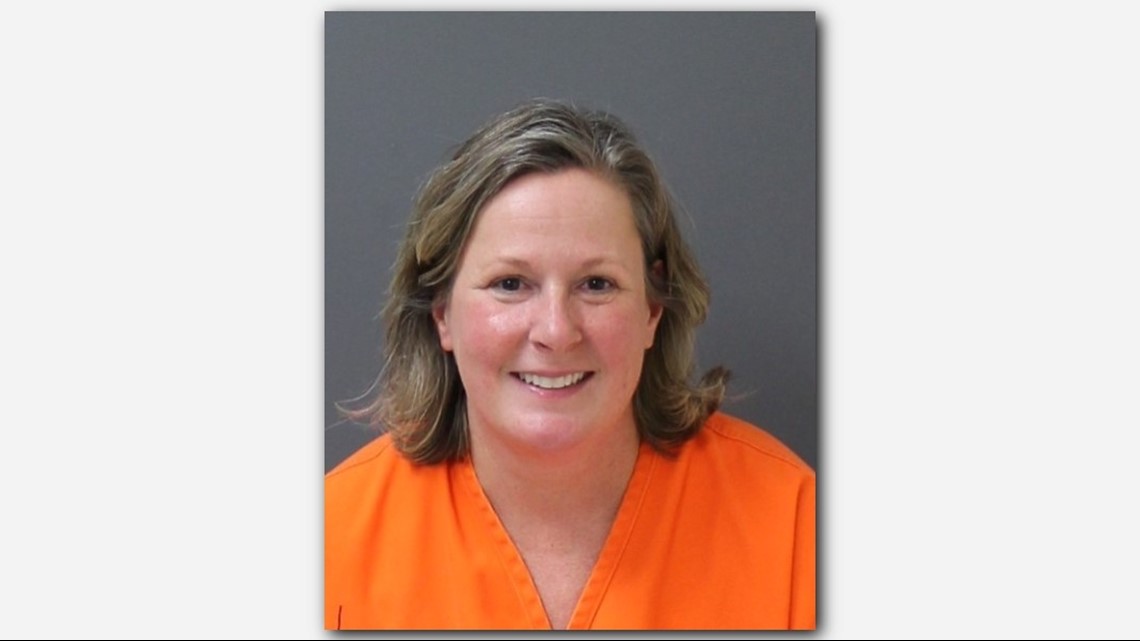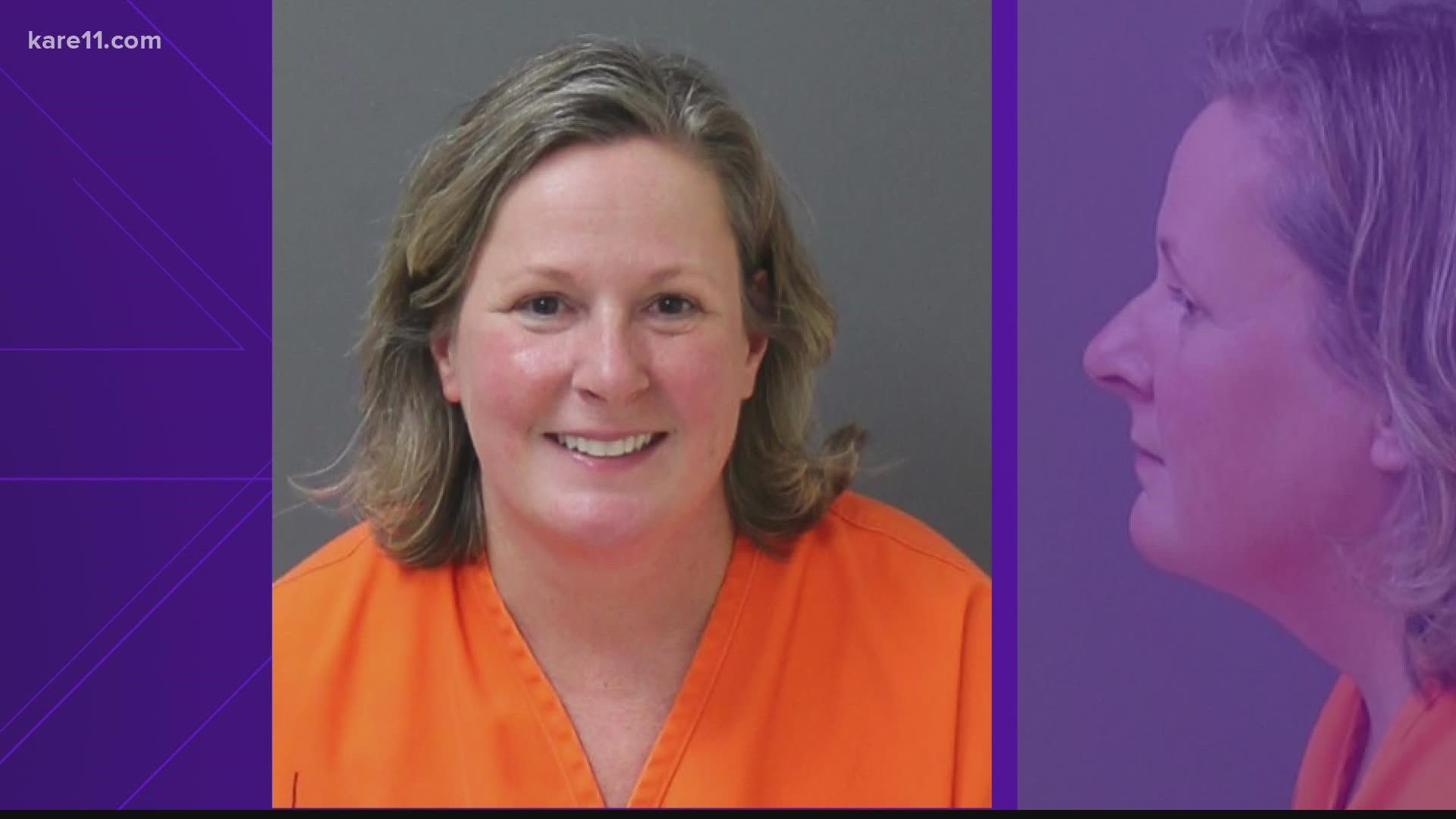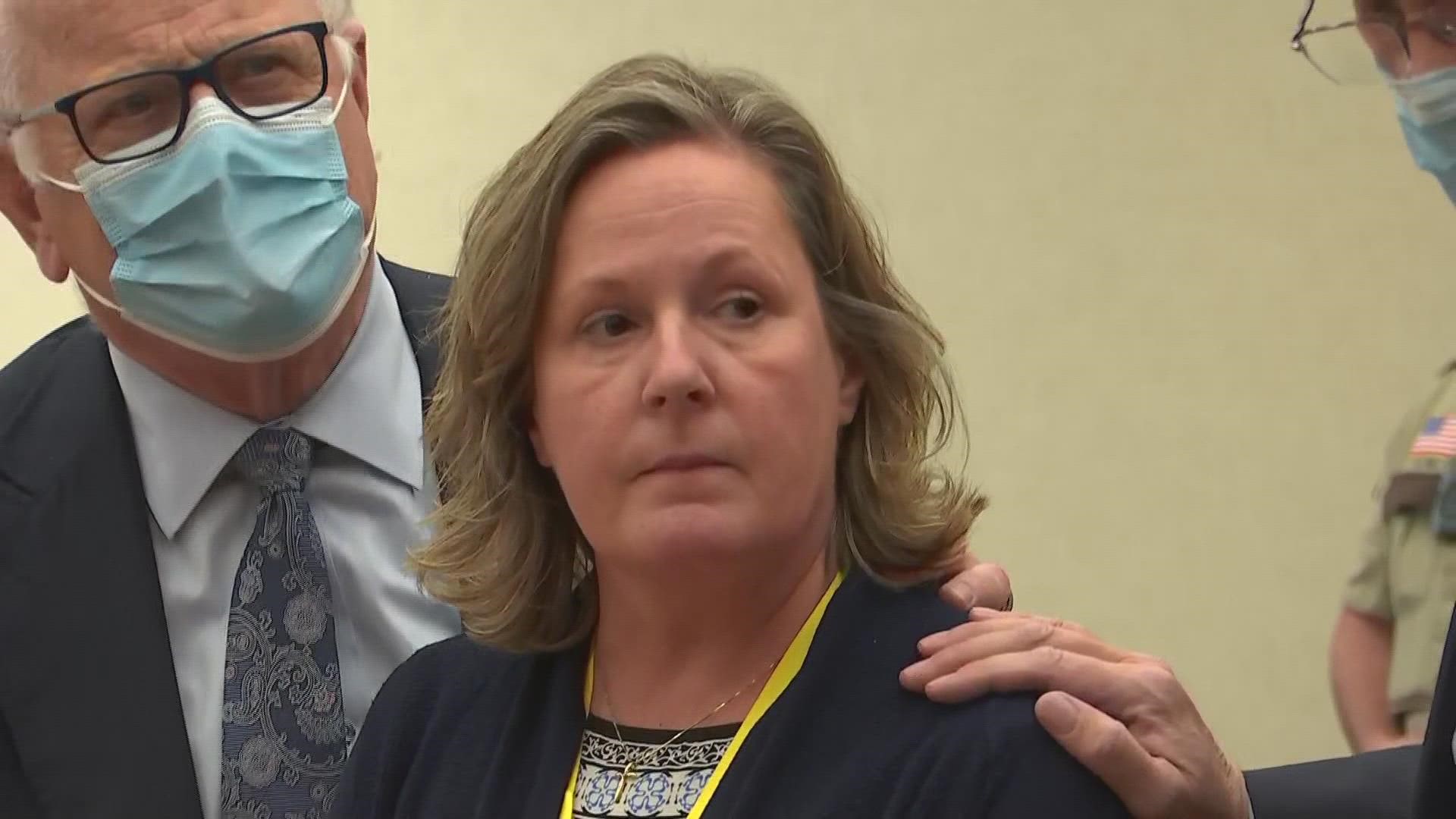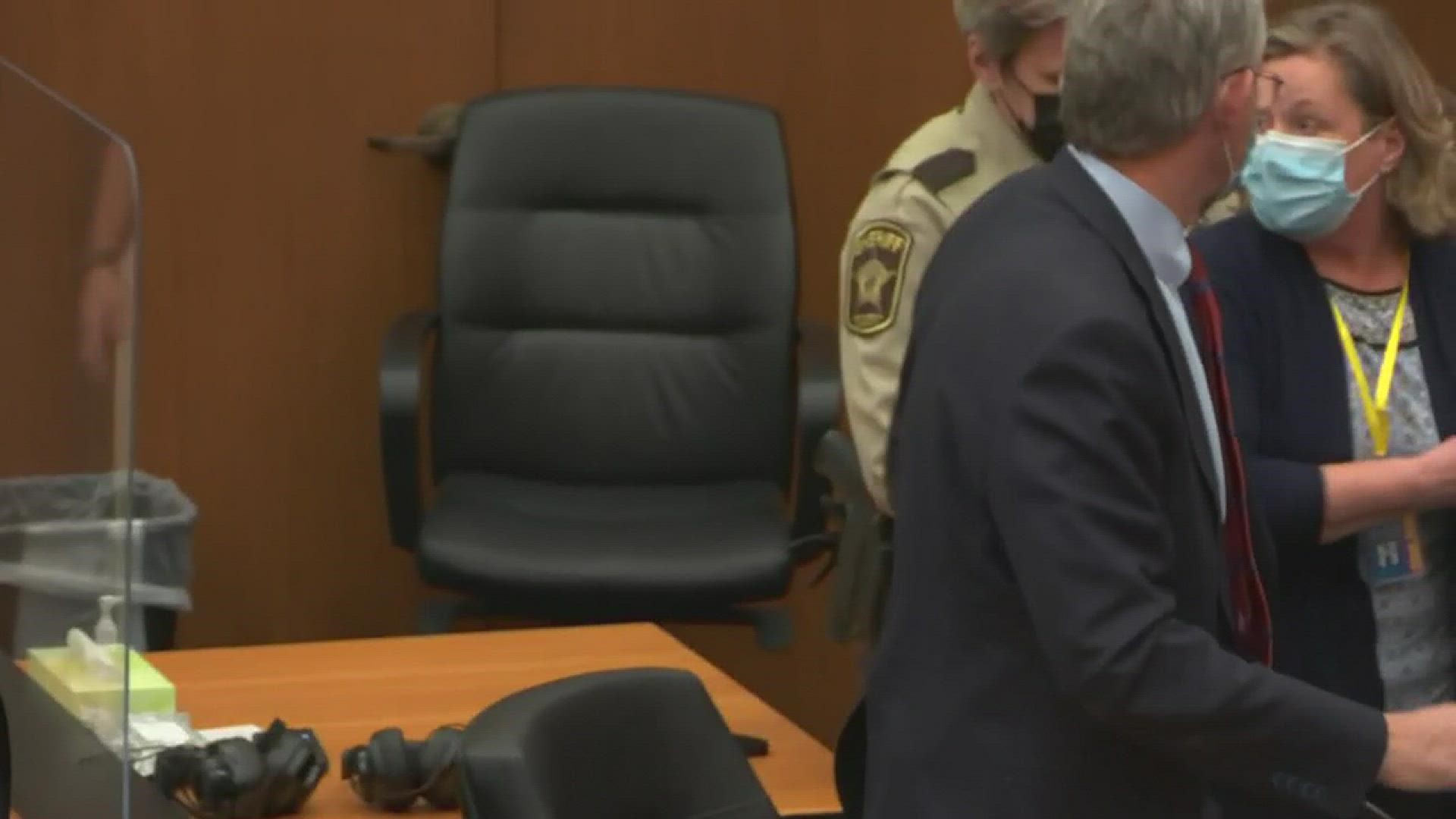MINNEAPOLIS — A Hennepin County jury has found former Brooklyn Center officer Kim Potter guilty of both first- and second-degree manslaughter in the shooting death of Daunte Wright during a traffic stop in April 2021.
The outcome reached by the 12-person jury panel came after four days of deliberation. A pool reporter in the courtroom described Potter's demeanor as unusually calm when the verdict was read, a far cry from the emotion she showed while testifying. Defense attorney Earl Gray was visibly upset, putting his head down on a table for a moment.
Daunte Wright's parents Arbuey Wright and Katie Bryant had tears in their eyes, letting out an audible cry with each guilty verdict.
Hennepin County District Judge Chu quickly polled the jury panel to make sure their decision was unanimous, and then told the 12 that they were "heroes."
"You did your duty. I'm so proud of you... you should be proud of yourselves," Chu said, as one juror broke into tears. "Without civic-minded citizens, our system of justice could not function."
Judge Chu ordered Potter into custody immediately and held without bail. Defense attorneys Paul Engh and Earl Gray argued that Potter should be allowed to stay free on bail until sentencing, saying she is a law abiding person who made a mistake and will not commit any crimes while free.
Prosecutor Matthew Frank countered by revealing that Potter is currently not living in Minnesota, and said she should remain in custody after being convicted of serious crimes.
"I cannot treat this case any differently than I would treat any other case," Chu said, siding with the state.
After discussion between Judge Chu and the attorneys sentencing for Potter was set for Friday, February 18 at 9 a.m. Engh and Gray hugged Potter in the moments before she was handcuffed by a Hennepin County deputy and led away to jail. "Love you Kim," said a male voice, likely belonging to Potter's husband, as she left the courtroom.
"Love you," Potter responded softly.
The most serious charge against Potter - first-degree manslaughter - carries a maximum penalty of 15 years in prison. But Minnesota state sentencing guidelines call for around seven. Prosecutors indicated they will seek a sentence that's above those guidelines, maintaining there are aggravating factors in the case, while the defense indicated Thursday that it would ask Judge Chu to hand down zero prison time.
KARE 11's Jennifer Hoff was outside the courthouse and reports that a crowd of dozens erupted in cheers when the verdict was read, hugging with tears streaming down their faces.
During a press conference following the verdict, Minnesota Attorney General Keith Ellison thanked the jury for their service to the people of Minnesota, witnesses who testified, and his team of prosecutors who forged the case that led to Potter's conviction.
"We have a degree of accountability for Daunte's death," Ellison reflected. "Accountability is not justice. Justice is restoration, justice would be restoring Daunte to life and making the Wright family whole again. Justice is beyond the reach we have in this life for Daunte."
Ellison asked the community to reflect on the life of Daunte Wright, and "who he could have been had he had a chance to grow up." He spoke of the empty chair there will be at the Wright family dinner table during the holidays. "That saddens me," Ellison said.
Less than two hours after the verdict was read in court, Potter had been booked into the Minnesota Correctional Facility in Shakopee. A new booking photo released by corrections officials shows Potter smiling at the camera, dressed in an orange jumpsuit.


A spokesperson from the Department of Corrections told KARE 11 reporter Lou Raguse that Potter will be held in a cell that is approximately 10 feet by 11 feet in administrative segregation.
The spokesperson said Potter will also undergo an immediate, 14-day quarantine to reduce the risk of transmitting COVID-19, with ongoing assessment by security staff during the quarantine period. She will only be allowed to leave her cell to make phone calls, participate in recreation and cleaning, and she will have access to resources like books and other materials as requested.
Visitors will also be allowed, as long as she is not in quarantine or isolation due to COVID.
Before the verdict
Jurors began deliberating shortly before 1 p.m. Monday following eight days of testimony in the case, and alerted court officials shortly after noon Thursday that they had reached an outcome.
During closing arguments Monday prosecutors said Potter was reckless with her handling of a firearm.
“She betrayed her badge and she betrayed her oath, she betrayed Daunte Wright and her fellow officers too. And her conduct was criminal," prosecutor Erin Eldridge said.
Defense attorneys argued the shooting was not criminal.
“Everybody makes mistakes, this lady here made a mistake, and my gosh, a mistake is not a crime,” defense attorney Earl Gray said “It just isn’t in our freedom-loving country, that we’re going to put you in jail for a mistake you made.”
The jury heard from Potter herself during the last day of testimony Friday, as she was called as the final witness for the defense. In emotional testimony, Potter described the "chaotic" moment when Brooklyn Center Officer Anthony Luckey attempted to arrest Daunte Wright.
Potter broke down as she described the ensuing “struggle” and said she remembered yelling, “Taser.”
"And then he told me I shot him," she said as she covered her face and broke into tears.
The prosecution's cross examination mostly focused on Potter’s training. Prosecutors showed Potter the BCPD’s Taser training policy, which states all trainings should include practicing drawing one’s Taser. Potter agreed that the purpose of that training was to reduce the risk of accidentally drawing a firearm.
Through tears, Potter said she didn't plan or want to use deadly force.
"I didn't want to hurt anybody," Potter said.
More from the Kim Potter trial
Watch more of KARE 11's coverage of the Kim Potter trial in the death of Daunte Wright in this YouTube playlist:



